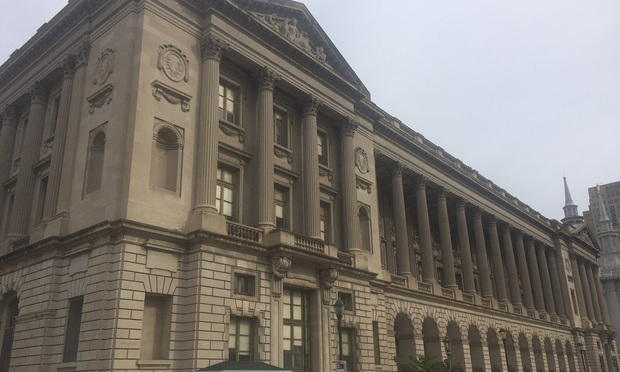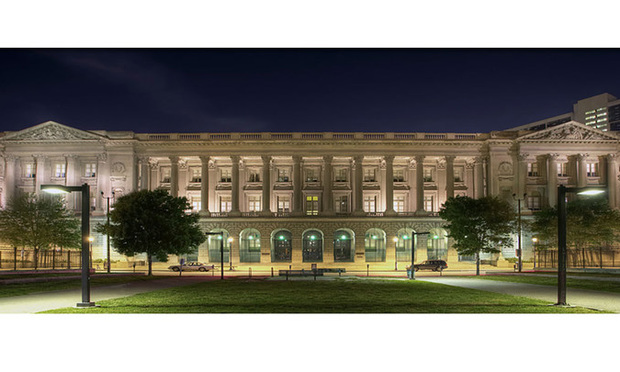 Philadelphia Family Court building, 1801 Vine St.
Philadelphia Family Court building, 1801 Vine St.
After the opening of the new state-of-the-art Philadelphia Family Court building on 1501 Arch St. three years ago, an $85 million redevelopment effort was launched to turn the old courthouse into a boutique hotel. But since then the cost of the project has gone up—by $28 million.
Real estate mogul R. Donahue Peebles—whose company, The Peebles Corp., purchased the site from the city—said in an interview with The Legal that the confounding effort to get the U.S. Department of the Interior to designate 1801 Vine St. as a historical site drove the cost up to $113 million.
The purpose of the historical designation was to make the project eligible to receive federal tax credits, according to Paul D. Chrystie, deputy director for communications for the City’s Department of Planning and Development.
But the pursuit of those tax breaks actually ended up driving up costs, according to Peebles.
“We went through the historic process and the Department of interior rejected the application for tax credits multiple times. Ultimately with the mayor and city’s assistance, the department gave it a second look,” Peebles said.
The National Park Service, which must approve all plans for historical sites, had objections to certain parts of the blueprints. The service did not allow full reconfiguration of corridors on the second and third floors, which reduced the number of hotel rooms and increased the renovation cost.
The whole affair “obviously complicated the development” and more capital was needed for the project, Peebles said.
Peebles said a few names for the hotel were being kicked around—including “The Courthouse” and simply “1801 Vine”—though nothing had been decided yet.
The plan is to convert the 247,000-square-foot space into a 205-room hotel, which will include a ballroom, a rooftop lounge, and a restaurant and bar designed to attract well-heeled travelers and businesspeople in town for conventions.
 Rendering of 1801 Vine St., Philadelphia. Provided by Peebles Corp.
Rendering of 1801 Vine St., Philadelphia. Provided by Peebles Corp.
The new Family Court building, which went up in 2014, was a $200 million undertaking helmed by former state Supreme Court Justice Ronald D. Castille.
The courthouse’s development process was not a smooth affair. Former Obermayer Rebmann Maxwell & Hippel lawyer Jeffrey Rotwitt served as an attorney for the state courts in their efforts to find a developer for the building, but then teamed up with the developer, Donald W. Pulver. Rotwitt had been splitting the development fees with Pulver along with taking advanced payments on his fee agreement with the court.
Rotwitt had said everything he did was known and aboveboard. The controversy resulted in Rotwitt’s termination from his former firm and a legal malpractice lawsuit filed against him and Obermayer Rebmann by the Philadelphia court system. The parties settled that suit for $4 million in December 2012, with the law firm paying $2 million and Rotwitt’s malpractice insurer paying the other half.
The domestic relations and juvenile court divisions of Family Court used to be located in different parts of the city, but both were moved under one roof in the new courthouse, consolidating the Family Court into one physical location.


